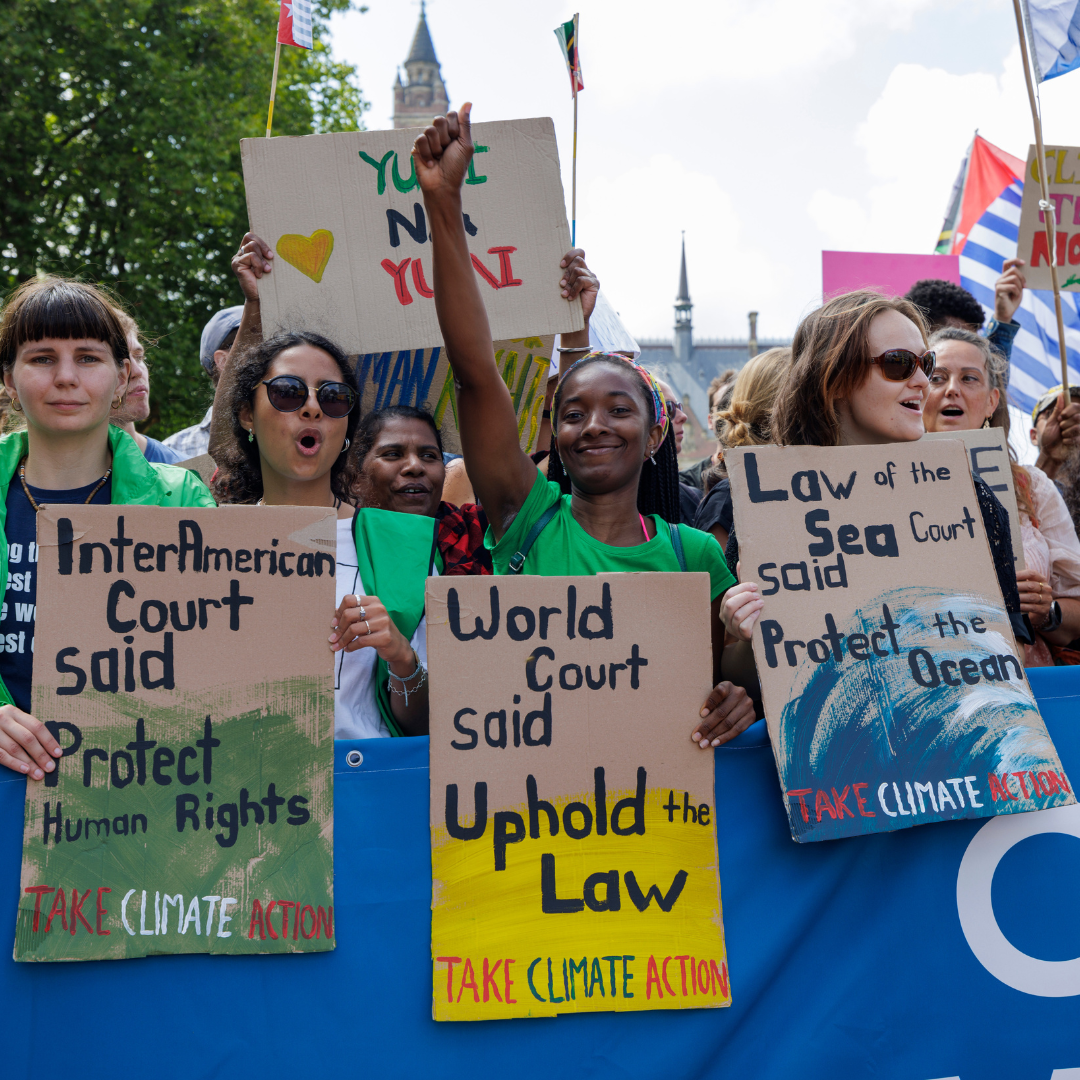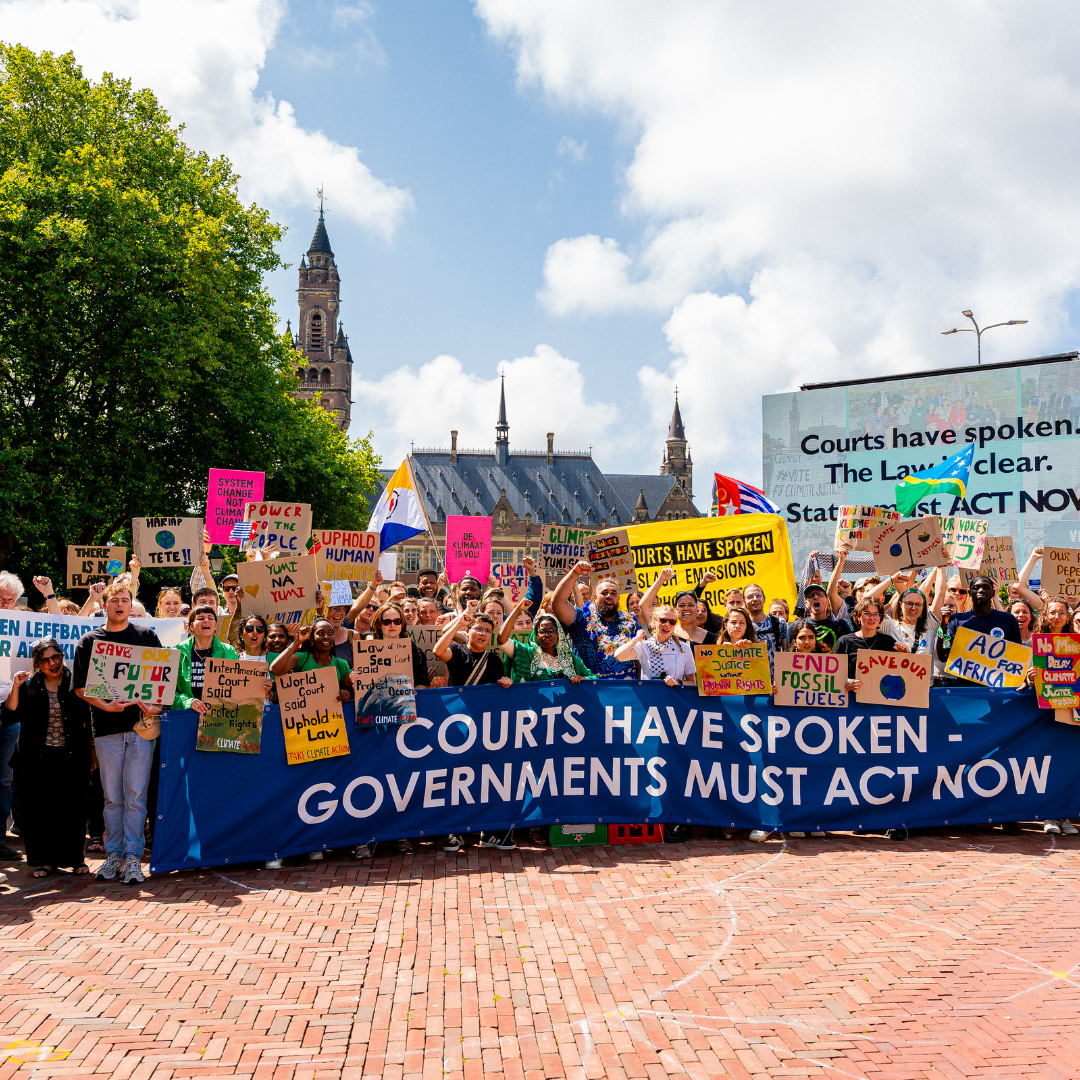UWC alumni at the heart of historic climate justice ruling
.png)
Several UWC graduates have helped make legal history. In an unprecedented example of global-movement building through law, alumni from across schools and colleges and cohorts contributed to what is considered the largest climate justice case in history.
In July 2025, the International Court of Justice (ICJ) published a landmark advisory opinion stating that countries may be legally responsible for their role in the climate crisis. It also confirmed that states could be required to pay compensation or restore damaged environments if they fail to prevent climate harm.
Dylan Kava (UWC Atlantic, 2012–2014), Strategic Engagement and Communications Lead at the Pacific Islands Climate Action Network (PICAN), played a key role in driving the campaign across the Pacific and Internationally. Jenisse C. Da Silva (UWC Maastricht, 2015-2027) supported legal submissions as part of the Ministry of Foreign Affairs for Timor-Leste. Theresa Amor-Jürgenssen (UWC Adriatic, 2014-2016) contributed vital legal research and helped build capacity among youth campaigners throughout the process.

UWC Maastricht alumna Aoife Fleming and Jule Schnakenberg (UWC Maastricht, 2014–2016) were also central to the effort. Their journey to the ICJ began as students at UWC Maastricht, where a shared passion for environmental justice grew into active collaboration through student-led workshops and lectures on climate change. Inspired by UWC’s mission to unite people for peace and a sustainable future, they began to see the law as a tool for systemic change.
 After graduating, both went on to study Law and co-founded World’s Youth for Climate Justice – a youth-led campaign that successfully lobbied the United Nations to request the ICJ opinion. The campaign brought together young people from around the world, including Pacific Island nations already facing the devastating effects of climate change.
After graduating, both went on to study Law and co-founded World’s Youth for Climate Justice – a youth-led campaign that successfully lobbied the United Nations to request the ICJ opinion. The campaign brought together young people from around the world, including Pacific Island nations already facing the devastating effects of climate change.
Aoife now works with the Coalition of Finance Ministers for Climate Action, supporting over 90 countries to align economic policy with climate goals. Jule is completing an MSc in Human Rights Law and continues to advocate at the intersection of law, climate, and human rights.
"International courts around the world have spoken loud and clear: climate harms must be avoided and reparations must be paid where damages have been caused. The alignment amongst these international courts demonstrates a unified understanding that the climate crisis threatens fundamental human rights. This consensus strengthens the foundation for ambitious climate action and provides a powerful mandate for governments to protect human rights from the adverse effects of climate change."
The ICJ ruling is an authoritative pronouncement on states' legal obligations regarding climate change and human rights, and is considered a historical breakthrough. It confirms that states have a legal duty to prevent greenhouse gas emissions and act on fossil fuels, and that governments must regulate private sector activities that contribute to climate harm while protecting the rights of those affected.
The decision is expected to shape future climate negotiations and legal cases. UN Secretary-General António Guterres called it “a victory for our planet, for climate justice and for the power of young people to make a difference”.
Read a brief summary of the court’s findings and learn more about the campaign at wy4cj.org.

